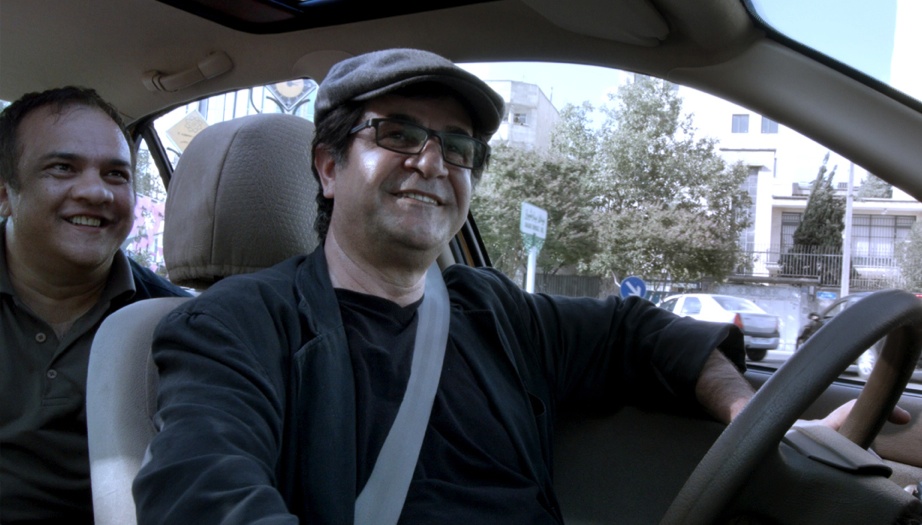Our Hightlight of the Berlinale: Taxi by Jafar Panahi

The Iranian filmmaker’s third feature produced while technically living under a filmmaking ban provides an original take on the role of video in modern society.
Jafar Panahi’s Taxi sets a high bar for this year’s Berlin International Film Festival competition lineup. Simultaneously serving as director and star, Panahi poses as a cab driver navigating the streets of Tehran while tiny digital cameras record his seemingly spontaneous interactions with a series of passengers. In his third feature since his 2010 arrest and filmmaking ban in Iran, this longtime alchemist of reality and fiction appears in full command of an exciting new mode of filmmaking devised in answer to the stifling constraints on his creativity.
With image-making mobile devices playing as featured a role as the people holding them, the film provides a vivid tour through the multiple uses of video in today’s society, with themes of ethics, criminality and social control rippling through the proceedings.
Since Panahi’s detention for supporting the Iranian pro-democracy movements, this leading figure of the Iranian New Wave has struggled to sustain his filmmaking, finding ways to work around a state ban from making films with official approval. With “Taxi,” Panahi returns for the first time in nearly a decade to the streets of Teheran, where he established his reputation as a skillful practitioner of street realism.

To evade unwanted attention while filming in public, Panahi cleverly sets the film entirely within the confines of a yellow cab. This automotive strategy creates a semi-private space for his dramas to unfold while allowing the sights, sounds and occasional interventions of the street to filter in.
As passengers hop on and off this ever-moving narrative on wheels, a structure gradually emerges in roughly eight discernible chapters involving different sets of riders. Each one presents a different take on the role of video in Iranian society, and the legal, cultural and economic factors that play into their use. When Panahi picks up a roadside accident victim and rushes him to the hospital, the victim begs to borrow an iPhone in order to record his will bequeathing everything to his wife, defying Islamic inheritance laws that discourage female beneficiaries.

Themes of filmmaking and exploitation return when Panahi’s scene-stealing niece, an aspiring auteur herself, films street footage for a school assignment and talks about the instructions of her teacher:
Moment by moment, the viewer is in a constant state of negotiation with what they are to believe as real. Our Higlight of the Berlinale!
In a victory both for cinema and artistic freedom, Taxi, the new drama from Iranian filmmaker Jafar Panahi, has won the Golden Bear for best film at the 65th Berlin International Film Festival.
Taxi is to be screened at the İstanbul Film Festival several times: On April 16th – 9.30 p.m. at Atlas and at Rexx Cinema, 11.30 p.m. at Atlas again and on April 19th 1.30 p.m. at Feriye. For further information and to purchase tickets click here.
Compilation of an article by By Kevin B. Lee at Indiewire

